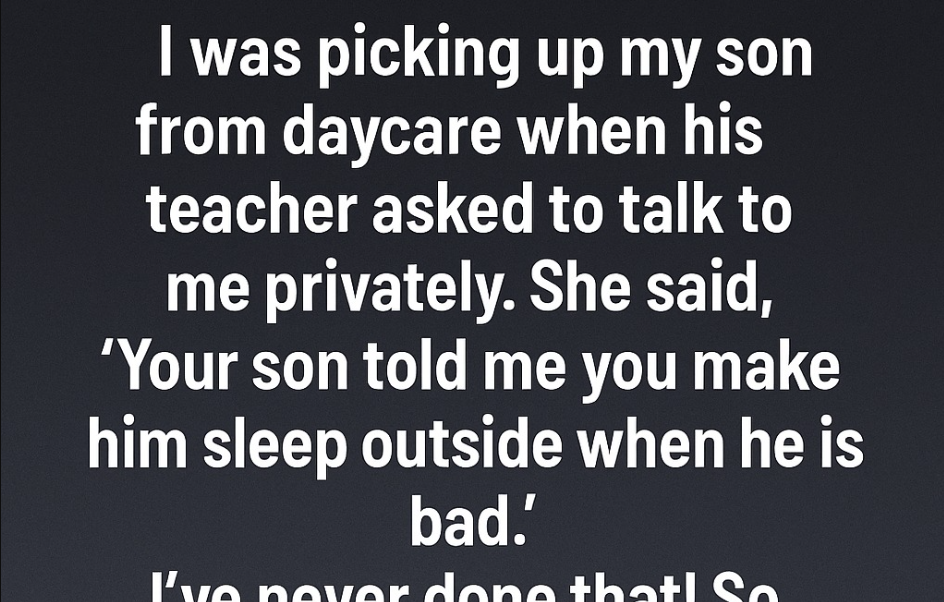The afternoon began like any other until my son’s daycare teacher drew me aside with a grave expression. Her tone was steady yet weighted as she shared, “Your son mentioned you make him sleep outside when he misbehaves.” My stomach churned. For a moment, air seemed to escape me. I had never done anything of the sort—where could he have formed such a notion? My thoughts spiraled through every scenario, torn between confusion, fear, and frustration.
That evening, after our meal, I chose to approach my son with care. Eager to avoid unsettling him, I offered a warm smile and said, “Hey buddy, what story did you share with your teacher today?” His face brightened as he chirped, “When I’m naughty, you say I get to sleep outside with the stars!” In that instant, my heart softened. The knot of worry unraveled, giving way to a blend of relief and quiet laughter.
Everything fell into place. At home, bedtime often becomes a playful ritual. When he’s too lively to settle, I tease that he might need to “camp beneath the stars.” To him, it’s a delightful game—a chance to dream of slumbering under a vast sky. Yet to an adult, those words carried a troubling tone. What I intended as a lighthearted gesture of love and imagination had been misunderstood.
That moment taught me how quickly misinterpretations arise between children and adults. Kids view the world through a lens of wonder, while grown-ups filter it through caution and experience. It showed me that communication goes beyond words—it requires attentive listening and thoughtful clarification before assumptions take hold. Often, the most profound insights spring from the tiniest voices in our lives.






